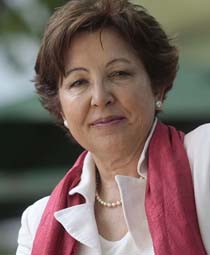
Nowadays, children have less and less time to play because many times games are subordinated to extra-curricular activities. Moreover, a third of them usually play alone, mostly to video games, which parents rely as a way to keep them busy. These are some of the conclusions of the first study about the relationship between family and children play carried out by Petra Mª Pérez, who is a full university professor of education theory at Universitat de València and a member of Institut de Creativitat i Innovacions Educatives.
The study’s goal is finding out the quality and quantitiy of family playing, that is between mothers and children (aged from 3 to 14). The research was presented last weekend at an event organized by the foundation Crecer Jugando and the Asociación Española de Fabricantes de Juguetes (AEFJ) on the commemoration of Father’s Day on March 19th.
This study has been carried out with the collaboration of Observatorio del Juego Infantil, where professor Petra María Pérez is a member. A thousand Spanish families have been surveyed online. Petra María Pérez has expressed her concern before the results of the survey, which discloses that most of children do not play with their neighbours (only 4.1%), but they do it with their brothers (63.8%) -who are nevertheless much younger or older than them-, classmates and friends (27.4%), and with fathers (53.2%) and mothers (59.1%).
These figures show that children play more with adults than with children of their same age. Before, ‘neighbours were our friends because of the continuum we had between home and game places.’
Moreover, playing is nowadays more and more subordinated to extra-curricular activities, where children are registered to receive formation for their future because ‘work is the main axis in this society’, as stated Jaume Bantulà, lecturer of education sciences in Universitat Ramón Llull (Barcelona) and member of Observatorio.
These activities consume a great deal of children’s free time. They are forced to attend these activities, and thus they are kept away from the play process, which is the tool, according to experts, that enables them to grow up and socially and emotionally develop.
But in the field, ‘things are not like that’, as the study’s author states. Dysfunctional behaviour is present in the minors, who are more and more playing alone with electronic devices like video games that favor this situation. Morevoer, they are ever younger children –only three or four years old.
From Monday to Friday, children do not play very much. Most of children who do play only devote one hour per day. At weekends, according to the study, they play more, since half of children spend more than four hours a day. Nevertheless, when playing, half of them play at home. The older the parents the greater time children spend playing at home, and it happens the same with large families.
They spend the remaining time at weekends playing outdoors, meeting with their families or going to the cinema with their parents.
Mother keep on having the best communication with their children. They take the role of setting rules of living together at home, while fathers take more the control of the different situations.
Last update: 21 de march de 2012 12:36.
News release



















